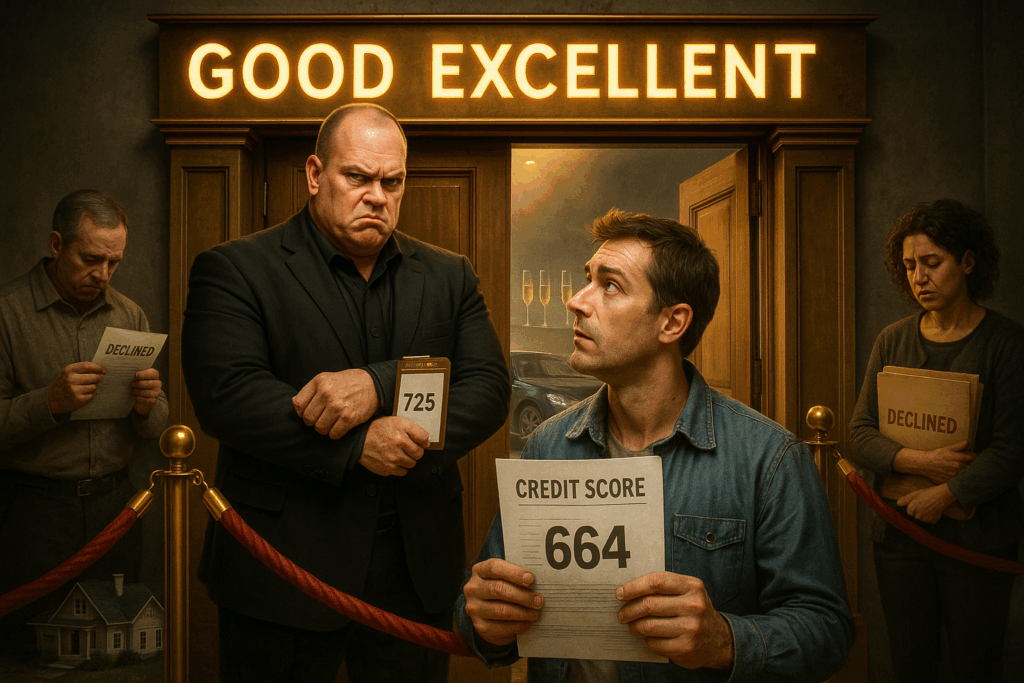How Credit Score Ranges Really Work (And Why Being “Good” Might Not Be Good Enough)

Most people think of their credit score as just a single number, but lenders don’t view it in isolation. They see it in terms of ranges, or categories that signal how risky or trustworthy you are as a borrower.
Understanding where you fall (and how close you are to the next range) can make the difference between an approval with great terms or a denial.
The Common Credit Score Ranges
While there are multiple scoring models, most follow similar categories:
- Excellent: 750–850
- Good: 700–749
- Fair: 650–699
- Poor: 600–649
- Very Poor: 300–599
Your exact score may vary depending on whether a lender uses FICO or VantageScore, but the ranges tell the bigger story.
Why Being “Good” Isn’t Always Good Enough
Here’s the catch: even if your score is in the “good” range, you may still pay higher interest rates or get stricter terms than someone in the “excellent” range. For example:
- A 720 score may qualify for a mortgage, but a 780 score could save you tens of thousands in interest over the life of the loan.
- Auto loan rates can differ by several percentage points between “good” and “excellent” borrowers.
In other words, moving up even one range can make a huge financial difference. If you want more information on a good credit score, check out What Is a Good Credit Score?.
How to Move Into the Next Range
- Lower Your Utilization
Pay down balances so you’re using less than 30% of your available credit (ideally under 10%). - Make Every Payment On Time
Even one late payment can hold you back. Set reminders or use auto-pay. - Let Your Accounts Age
Keep older accounts open. They add valuable history. - Limit New Applications
Too many inquiries in a short time can drop your score temporarily. - Check for Errors
Incorrect late payments or balances can keep you in a lower range until they’re fixed.
Final Thoughts
Your credit score isn’t just about getting approved. It’s about the terms you receive. Being in the “good” range is a solid start, but reaching “excellent” can save you thousands of dollars and open even more doors.
At CreditNerds.com, we help people not just repair their credit, but also climb into the ranges that unlock the best financial opportunities. If you’d like to start your credit journey, sign up for your free consultation today.

